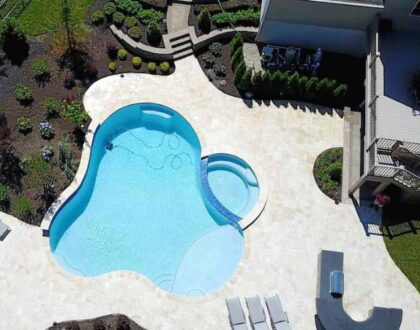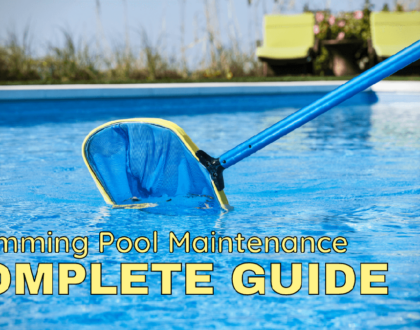How To Choose a Low-Maintenance Swimming Pool
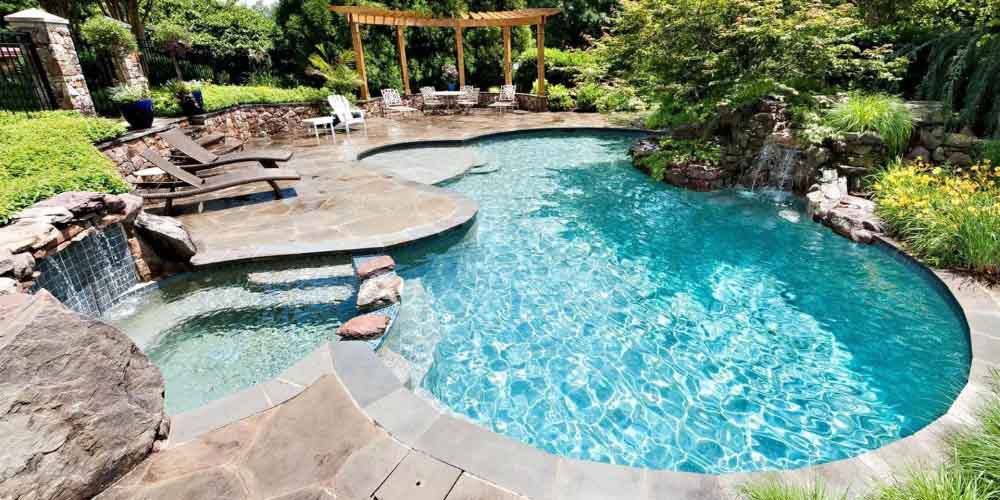
Pool maintenance is inevitable, and some types of pools are more high maintenance than others. Regardless of the level of upkeep that you’re looking at, you should get a professional opinion about the selections of pools that are available and what it takes to keep them looking crystal clear on the inside and clutter free on the outside. Indeed, there are several factors that affect the frequency and cost of pool maintenance to consider such as durability, size, and the interior finish. After learning more about these varieties, perhaps you will be ready to take the next step in upgrading your backyard space.
Types of Low Maintenance Pools
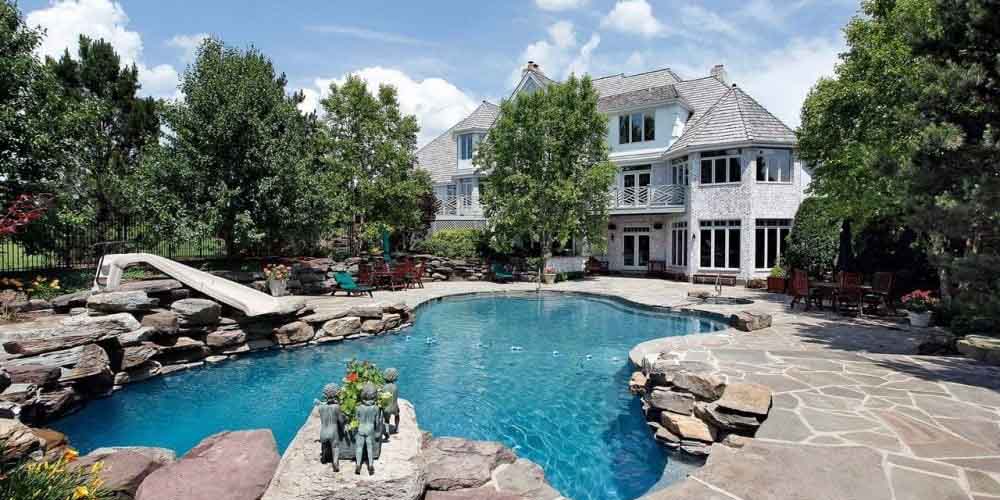
The types of pools that you will encounter as you consult with a professional contractor include:
- Concrete
- Gunite
- Vinyl
- Fiberglass
All these choices require some degree of regular pool maintenance. For example, some types may require resurfacing every few years while others will not need it at all. For others, you might have to be more vigilant about stains while some variations are easy to clean due to the smoothness of the finish. So, let’s explore the different types of pools along with the upkeep they require.
Concrete Pool Maintenance
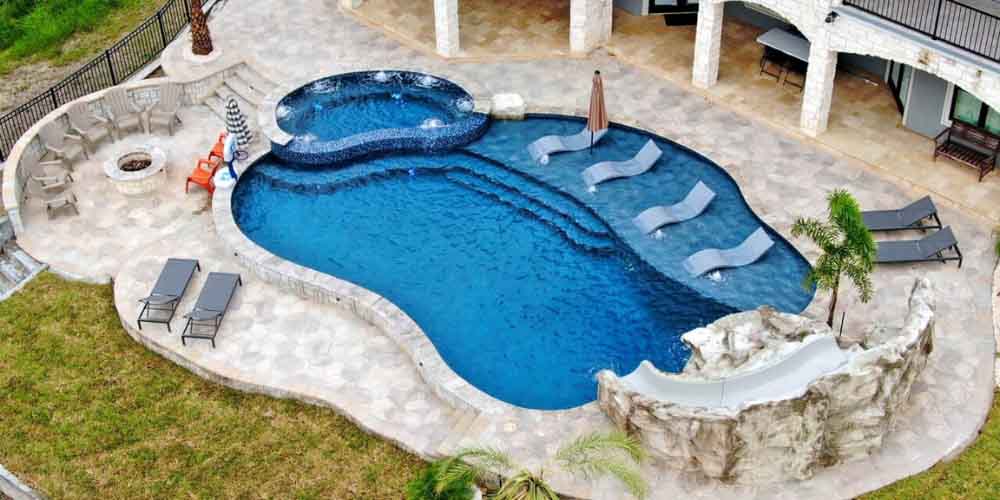
With the concrete pool, you should consider the following:
- Dealing with algae
- Resurfacing
- Acid washing
- Running the filtration daily
- Weekly cleaning with a steel brush
- Annual professional cleaning
On a weekly basis, you will need to scrub a concrete pool with a steel brush to disrupt the algal environment and prevent blooms from occurring. Another preventive measure is an acid wash every 3 to 5 years, but if you do not have the proper protective gear or the experience of handling muriatic acid, you should enlist the services of a professional pool cleaner. Plus, you will need to closely monitor your pump and filtration system since it must run 2 circulations daily in addition to a daily dose of acid which means weekly testing of the water’s pH level.
Gunite Pool Maintenance
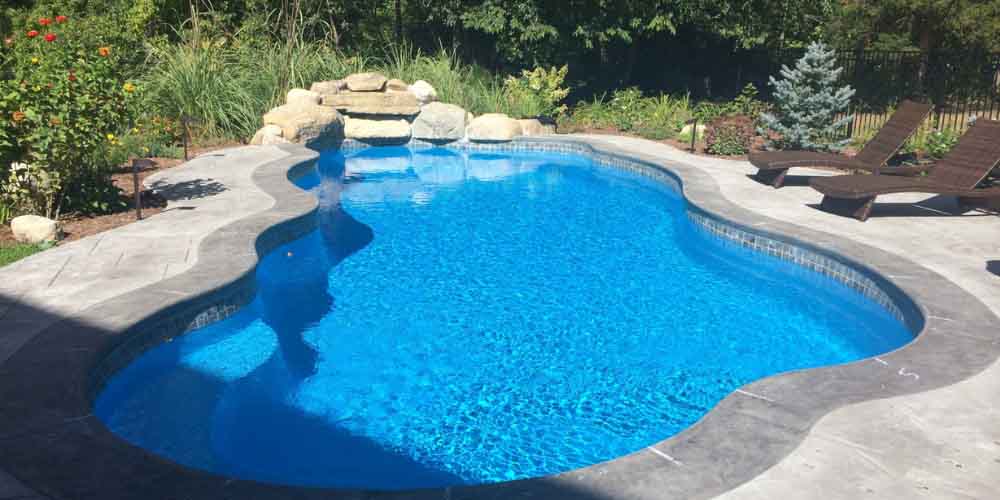
Likewise, the gunite option, though quite durable, has its own set of preservation requirements.
- Daily filtration circulation
- Warding off algae
- Daily skimming
- Making sure the automatic cleaner doesn’t get stuck
The gunite pool needs daily skimming to remove debris and weekly vacuuming. Because the surface of a gunite is also susceptible to algae growth, you will need to monitor the alkalinity, chlorine, and pH level of the water weekly since you will be adding chemicals often. In relation to more extensive pool maintenance, the gunite may need to be replastered, and any cracks that appear need immediate repairs. Moreover, like the concrete pool, the gunite’s pump must run frequently.
Vinyl Liner Pool Maintenance
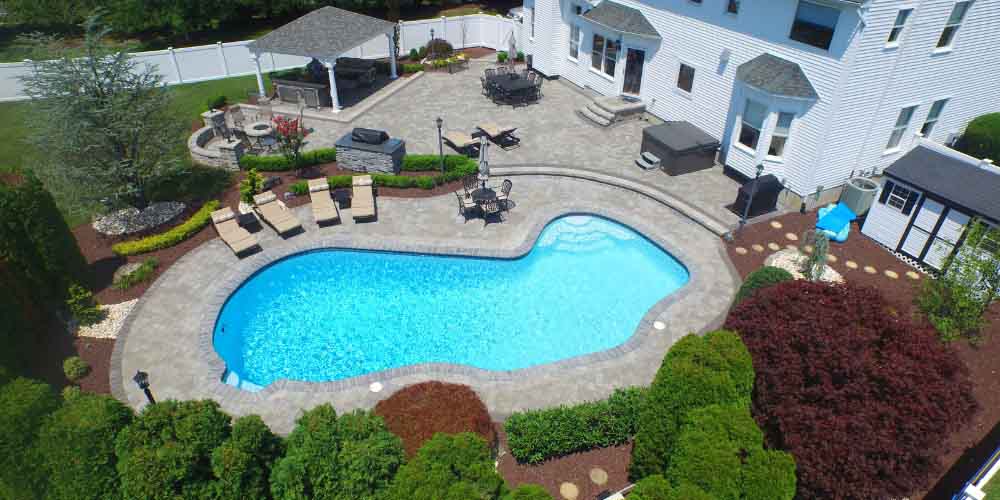
Subsequently, pools with a vinyl liner have a simpler pool maintenance routine which includes the following practices:
- Leak repair
- Liner replacement
- Prime focus on chemical balance
- Seams that are at risk for algal growth
Aside from the average pool maintenance that involves, skimming, vacuuming, and checking chemicals, you will need to pay special attention to the liner to make sure any tears are promptly repaired. And although the vinyl liner pool is not a vulnerable to algae growth as the concrete and the gunite, you still need to monitor the chemical usage and pH level because corners and seams provide the ideal environment for algae.
Fiberglass Pool Maintenance
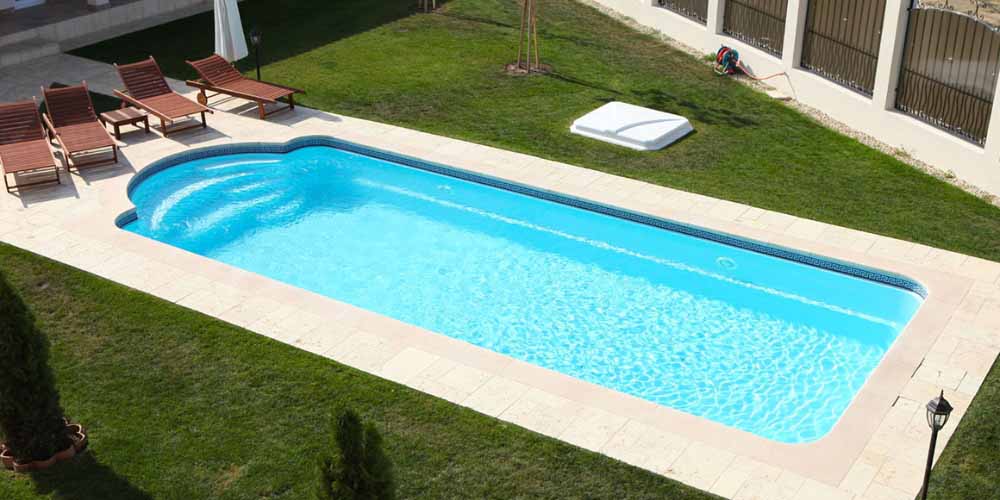
The fiberglass pool, unlike the other types, offers little worry when it comes to algae. Because of the gelcoat on the surface, algae cannot find a friendly environment to thrive in. Plus, with the fiberglass pool, you will not have to do any cleaning with a steal brush. So, the primary aspects of maintenance are:
- Daily filtration circulation
- Regular monitoring of chemical balance
The fiberglass variety is by far the easiest pool to maintain. For one thing, only one daily circulation and a weekly cleaning are needed. Additionally, the smooth finish that’s covered in gel coat makes this pool less prone to algae growth. However, you still need to monitor the chemical levels and test on a weekly basis. Regarding more complex maintenance measures, your pool may need refinishing every 10 to 15 years and an acid washing every 3 to 5 years.
Call the Experts
If you want to learn more about the features of each of the options, call the experts at Custom Pool Pros. Along with the choice of amenities that come with each design, they are also prepared to walk you through the necessary pool maintenance practices for each type of aquatic space. Thus, the best time spent in the process of choosing a pool is discussing the amount of time you have for maintenance and the budget that you are working with. If you have questions, the professionals at Custom Pool Pros have answers about all your pool maintenance needs.
Recommended Posts
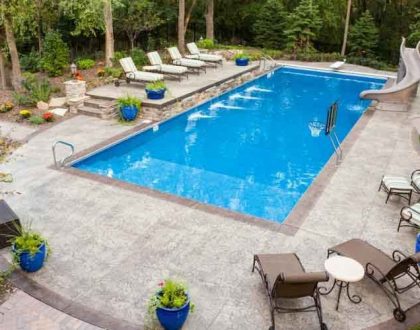
A Seasonal Guide to Pool Maintenance
13 October 2022

